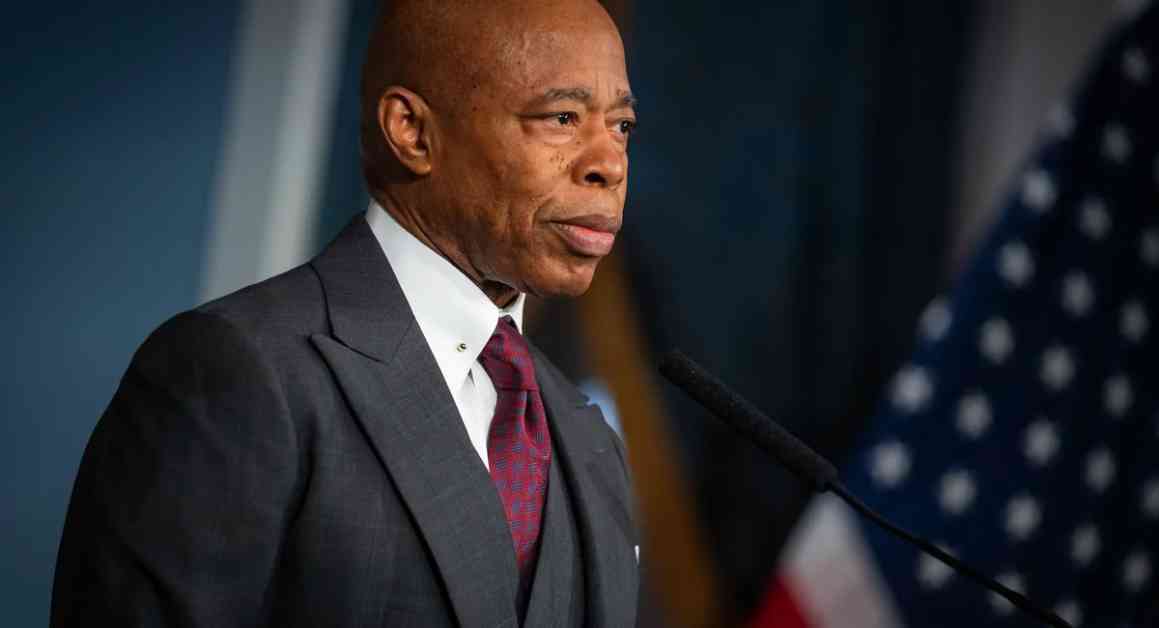The mayoral race in New York City is heating up as the incumbent, Mayor Eric Adams, faces re-election amidst a campaign that has become increasingly focused on his perceived alignment with former President Donald Trump. The Department of Justice’s recent decision to drop corruption charges against Adams, a move that Trump had hinted at during his campaign, has intensified the narrative surrounding Adams’ connection to the former president and the impact it may have on his chances for re-election.
Challenges Ahead for Mayor Adams
Despite the relief of having the corruption charges dropped, Mayor Adams still faces significant hurdles in his bid for re-election. Low approval ratings, a slowdown in fundraising due to the city’s denial of matching funds, and a crowded field of Democratic challengers all pose potential threats to his campaign. His association with Trump, who only garnered about 30% of the vote in the city and remains unpopular among Democrats, further complicates Adams’ prospects for another term in office.
The Impact of Trump’s Influence
The ties between Mayor Adams and Trump have not gone unnoticed by the city’s residents and political observers. The city’s Black voters, a crucial part of Adams’ base, largely supported Kamala Harris in the last election, highlighting the potential backlash Adams may face due to his perceived closeness to Trump. Civil rights activist Rev. Al Sharpton, a longtime friend of Adams, expressed concern over the Department of Justice’s decision to drop the charges, suggesting that Adams may be beholden to Trump’s administration as a result.
Expert Insights and Political Commentary
Political experts and mayoral challengers alike have weighed in on the implications of Adams’ connection to Trump. Former Democratic consultant Basil Smikle expressed surprise at the extent of Trump’s influence on Adams, suggesting that it could be perceived as a betrayal of the city’s interests. State Sen. Zellnor Myrie and City Comptroller Brad Lander, two of Adams’ challengers, both criticized the mayor for prioritizing his relationship with Trump over the well-being of New Yorkers.
Speculation and Uncertainty
As speculation grows about Adams potentially returning to the GOP amid his increasing embrace of Trump, the political landscape in New York City remains uncertain. Billionaire Republican donor John Catsimatidis, a staunch Trump supporter, dined with Adams when news of the dropped charges broke, hinting at the possibility of Adams keeping his options open regarding party affiliation. Democratic political consultant Rebecca Katz, who played a key role in Bill de Blasio’s successful mayoral campaign in 2013, emphasized the unpredictable nature of political races and the potential for unexpected shifts in candidate fortunes.
Conclusion
As Mayor Eric Adams navigates the complexities of his re-election campaign, his relationship with former President Donald Trump looms large as a defining factor in the race. With challenges on multiple fronts, including fundraising, approval ratings, and a crowded field of Democratic challengers, Adams faces an uphill battle to secure another term in office. The impact of Trump’s influence, both on Adams’ campaign and the city at large, remains a central theme in the unfolding narrative of the New York City mayoral race.












